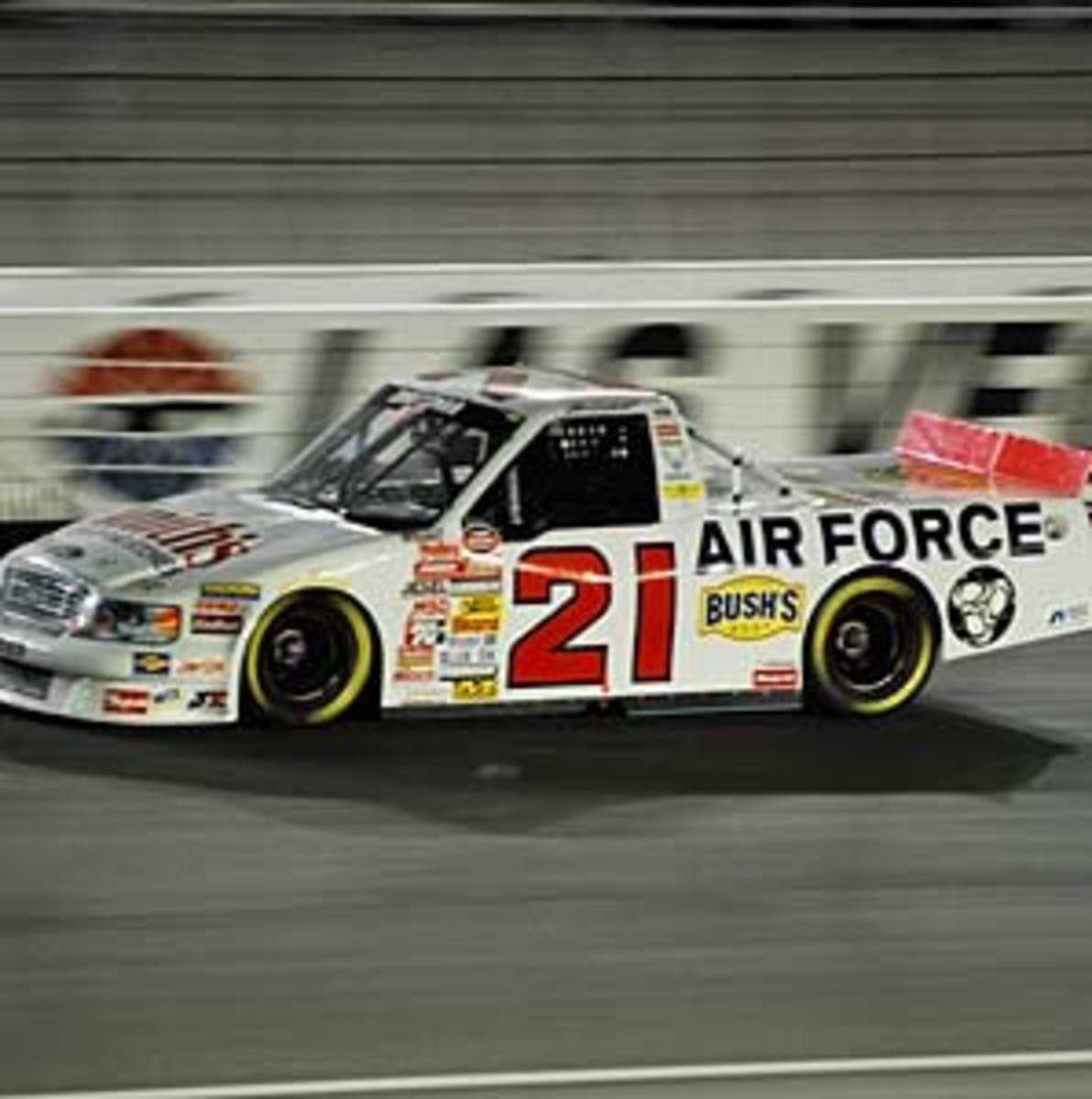Woods brothers could save team with a revolutionary plan


Eddie Wood sat under the shade of his Wood Brothers transporter on Saturday at Homestead-Miami Speedway, greasy smoke from cheeseburgers on the nearby gas grill wafting across his face. The team's poor standing in Sprint Cup owner points -- 40th -- had relegated his transporter and a few others to the back alleys of the NASCAR garage, in the shadow of the more successful teams, on a downhill grade, where sundry fluids seeping from those haulers gurgled down a large grate.
Woods' legendary team No. 21 is hurting. The Air Force sponsorship that had buttressed his one-car effort had been lost just a few days before. He had a few lines on a few dollars to begin the 2009 season -- "we'll be here," he said -- but didn't know how he'd do it in such pressing economic times that the monster teams with good parking spots had begun to fire employees, merge into larger clumps to protect themselves.
But just as the Woods' forward thinking and innovation in making pit stops faster and more efficient changed racing decades ago, their plan to assure the very survival of one of NASCAR's cornerstone teams might again prove revolutionary. It's not genius, not even original in the slightest, but necessary, Wood said, and it might take NASCAR back to its future.
With ever-increasing portions of team budgets being allocated to payroll hundreds of employees just within the race shop, the day of the specialist, Wood said, is gone at his operation. No one need apply unless they are versatile. "That's the way it used to be," he said. "It's where I'm headed."
Wood said he used to be able to find versatile employees before his team moved from its ancestral home in Stuart, Va., a few years ago to be closer to the hive of talent and technical expertise centered in the Charlotte area. Once there, he said, it became harder to find versatile employees. So the sport became bloated, he said, and now it's suffering a painful "correction," according to his brother, Len. "You'll have people come in your shop looking for a job that says, 'Well, I just make crush panels.'," Eddie Wood said, feigning a typical conversation with a prospective hire. 'That's all you do?' "Yeah.' "OK,' Wood continued, "well, now you're going to be looking for the guy who makes crush panels, maybe change tires or maybe can weld, and do several things. Sometimes it now takes two or three guys to do what it used to take one guy to do. There were people who worked on race cars, that grew up racing and knew that kind of thing."
Wood said the concentration of teams in Charlotte, and the explosive growth the sport enjoyed from the '80s until just a few years ago, bred a generation of the non-versatile. "The reason the thing probably got out of hand was so many people, with budgets and salaries, there was so many teams," he said. "Everybody needed people to do the work, so that guy could do that, that guy could do that, so you go hire the guy. Now things are different and I think owners are going to be looking for guys who can do more than one thing. I knew we are."
Even Dale Earnhardt Jr., who has been surrounded on his teams by family and friends since his late father first put him in a car, said his JR Motorsports Nationwide series team had become over-staffed because he found it hard not to hire those he knew and trusted socially.
Schools that prepare students for careers in NASCAR are adapting to the philosophical shift, said Doug Burns, senior recruiter for the Mooresville, N.C.-based Performance Training Institute, a pit crew training facility. Burns said he has always sought recruits with some automotive or racing background, but such experience is almost a prerequisite now. "Two or three years ago I could go find a football payer and train him to be a jack man and he would have a good chance of ending up on a team," Burns said. "Now team owners need to get their money's worth out of a guy. There's still room for guys who don't have a vast amount of experience, and the pit crew is a critical, specialized element, but it's a lot easier these days if you can do other things."
Three-time Sprint Cup champion Darrell Waltrip, who spent a combined 32 years fielding Sprint Cup, Nationwide and truck series teams, blamed Ray Evernham for the proliferation of specialists and subsequent explosion in payrolls. Evernham won three championships as crew chief for Jeff Gordon at Hendrick Motorsports, overwhelming the garage with his meticulous attention to detail and inadvertently, Waltrip thinks, the number of employees needed to attain such standards.
In a series hindered by "one-upmanship," Waltrip said, Hendrick's competitors soon began stock-piling employees in an attempt to mimic Evernham's results. Evernham formed his own race team but has since sold majority interest to George Gillett Jr.
"Ray Evernham started a lot of this by being so detail-oriented with the pit crew and every piece of the car," Waltrip said. "Ray did a lot of that coming from IROC because that's what they did in IROC. So he brought that to Hendrick Motorsports and I think Ray really created a lot of the stuff we see today. But you don't need specialists, you need generalists.
"You go to a test and Hendrick Motorsports pulls in a bank of 20 computers and 20 men with white aprons sitting at each one of them. [Team owner] Jack Roush sees that and he says, 'Well, I've got to get 22.' And then [team owner] Richard Childress says, 'I've got to get 23.' "
But if Eddie Woods sees them, he's liable to put a wrench in their hand.
